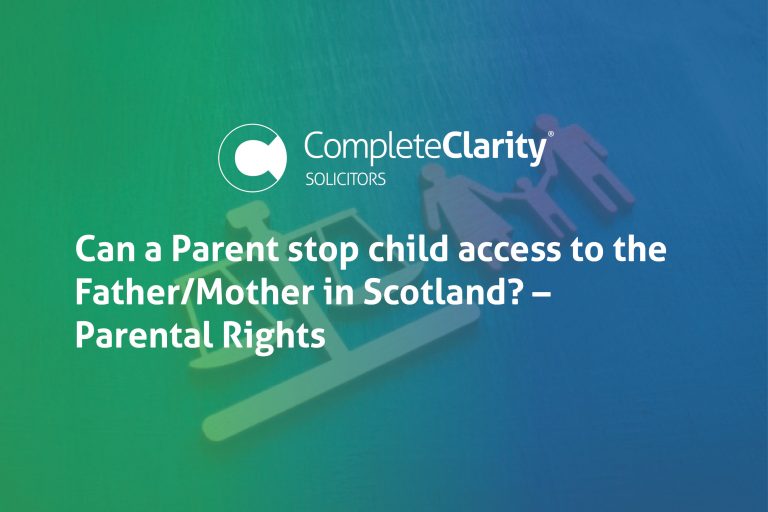When parents separate or divorce, one of the most challenging issues they face is determining where their child or children will live, often necessitating a court to grant a residence order. In Scotland, as in many jurisdictions, the welfare of the child is the paramount consideration in any decision regarding custody or residence and contact orders, aiming to favour the child’s best interests. The law aims to ensure that the best interests of the child are always at the heart of any decision made concerning the child’s residence and contact.
The Legal Framework in Scotland
In Scotland, the relevant legislation is the Children (Scotland) Act 1995, which governs family law matters, including those relating to the residence of children when parents are no longer living together. The Act is underpinned by the principle that the child’s welfare is the most important consideration and that no order should be made by a court unless it is better for the child that the order is made than that none should be made at all.
The Voice of the Child – What age can a child decide
While the Act doesn’t specify an exact age at which a child can choose which parent to live within a court order, it does introduce the concept of the child’s views being taken into account, particularly once the child reaches the age where their opinion holds substantial weight. In child custody cases, the views of children aged 12 or over are given more weight, as it is assumed they are of sufficient age and maturity to form a view. However, the opinions of younger children are not dismissed out of hand; they are also considered if they display enough understanding of the situation and the implications of where the child should live.
How Are Children’s Views Considered?
The way a child’s views are taken into account can vary, especially regarding orders in place about child residence and contact and decisions about which parent the non-resident parent will be. In some child custody cases, a child may be directly asked by a judge, or a specially appointed child welfare reporter may be tasked with ascertaining the child’s views. Additionally, children can express their views through a solicitor who represents them directly in matters of child arrangements order, ensuring their preference on who the non-resident parent should be is heard.
Factors Influencing the Decision – Solicitors Advise
While the child’s preference to live with one parent is important, it is just one of many factors that the court will consider in a residency order. The court will also look at the birth certificate, among other factors.
- The reasonableness of the child’s preference.
- The stability and suitability of each parent’s home.
- The child’s current living arrangement and the impact of change.
- The child’s educational, emotional, and social needs.
- The capacity of each parent to meet the child’s needs is an important factor considered in cases of parental rights and responsibilities.
- The potential effect of any change on the child.
What If a Child Is Under 12?
For children under 12, it is a matter of individual assessment. The court will consider whether the child has sufficient maturity to form a view and whether they can express their wishes and feelings about where they want to live. When deciding on residence and contact agreements, there’s no rigid rule, and much depends on the individual child.
The Role of Mediation
In some cases, rather than going through the courts, families may find it helpful to engage in mediation to discuss child arrangements, including determining with whom the child should live. This allows for a more collaborative approach to deciding on living arrangements, where the child can have a voice in a less formal setting regarding where the child should live.
Conclusion
In Scotland, there is no fixed age at which a child can decide which parent they want to live with. In decisions over a residence order, the court will take into account the child’s views, with more weight generally given to those of children aged 12 and over, but the overriding consideration will always be the child’s welfare. The process aims to be sensitive to the needs and wishes of the child while balancing other important factors to arrive at a decision that is in their best interests and concerning child arrangements.







